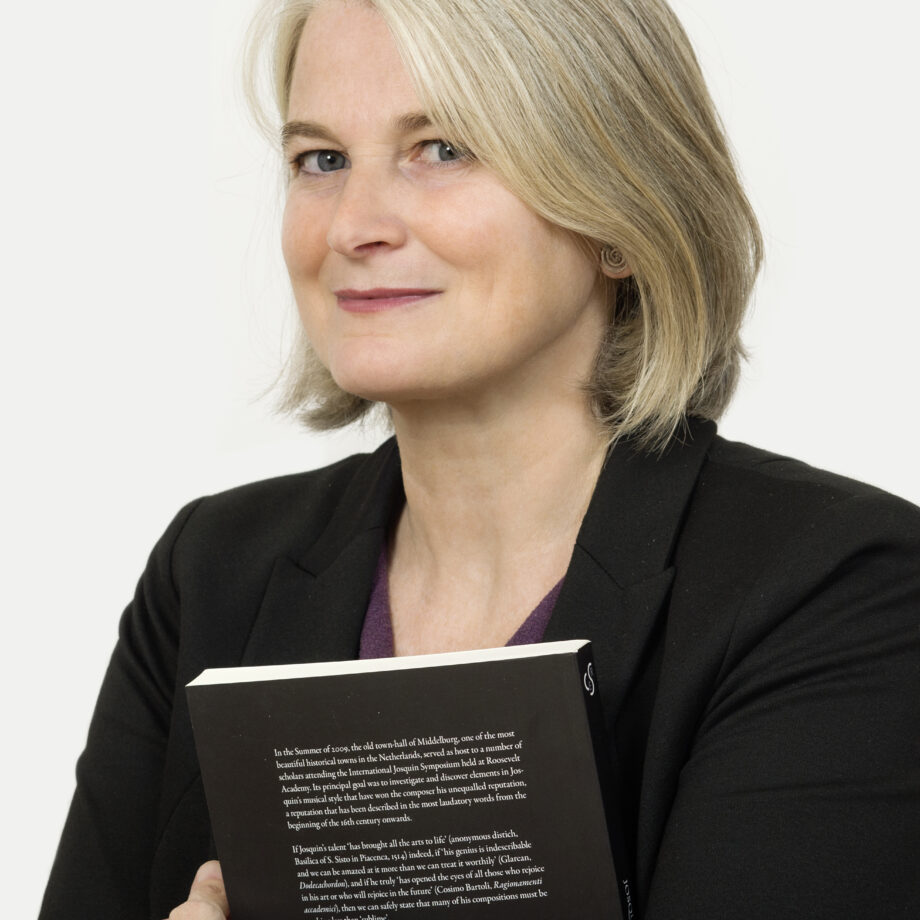
Agnese
Pavanello
Agnese Pavanello studied musicology at the universities of Pavia, Regensburg, Freiburg i. Br. and Basel as well as at the University of Fribourg, where she received her doctorate in musicology. According to
her work as a musicological assistant at the universities of Salzburg and Vienna and the publication of articles, editions of instrumental music (Corelli, Tartini, Locatelli, Bonporti) and a book on Roman concerti grossi, she was a contributor to the Gaspar van Weerbeke Edition and editor of Gaspar van Weerbeke’s masses and motets. Since 2012 she has been working in the research department of the Schola Cantorum Basiliensis in Basel with teaching and research assignments. From 2014 to 2021, she led two SNSF research projects on Renaissance music, focusing in particular on questions of the transmission and function of motets cycles at the end of the 15th century.
Gaffurius’ Libroni – Ave regina caelorum
From the concert Reopening Gaffurius’ Libroni – Motets in Milan in Barfüsserkirche January 30, 2022 Basel Historisches Museum Basel
Gaffurius’ Libroni – Gloria Credo breves
Concert clip January 2022 from “Reopening Gaffurius’ Libroni” – Motets from Milan
Gaffurius’ Libroni – Mater digna Dei
Gaspar van Weerbeke, Gaffurius Librone 1, fol. 115v-116r
From the concert Reopening Gaffurius’ Libroni – Motets in Milan, January 30, 2022, Barfüsserkirche Historisches Museum Basel
Gaffurius’ Libroni – Spes reorum es
From the sequence Ave virgo gloriosa, Heerenberg, Castle Huis Bergh, MS 34, fol. 135r-138r
From the concert Reopening Gaffurius’ Libroni – Motets in Milan, January 30, 2022, Barfüsserkirche Historisches Museum Basel
Gaffurius’ Libroni – Ave Maria gratia plena (Loyset Compère) (2nd part: Sancte Michael)
Librone 3, 187v-189r
From the concert Reopening Gaffurius’ Libroni – Motets in Milan, January 30, 2022, Barfüsserkirche Historisches Museum Basel
2025
September
Festival 2025 «ARCADIA»
2. ReRenaissance FestivalBasel, Martinskirche
October
Brummen und Blaßen
Douçaine, Rackett and DulcianBarfüsserkirche
Basel Historical Museum
November
Byrd and the Baron
A secret ChristmasBarfüsserkirche
Basel Historical Museum
December
Advent Calendar
Daily online surprisesGold-printed paper calendar
